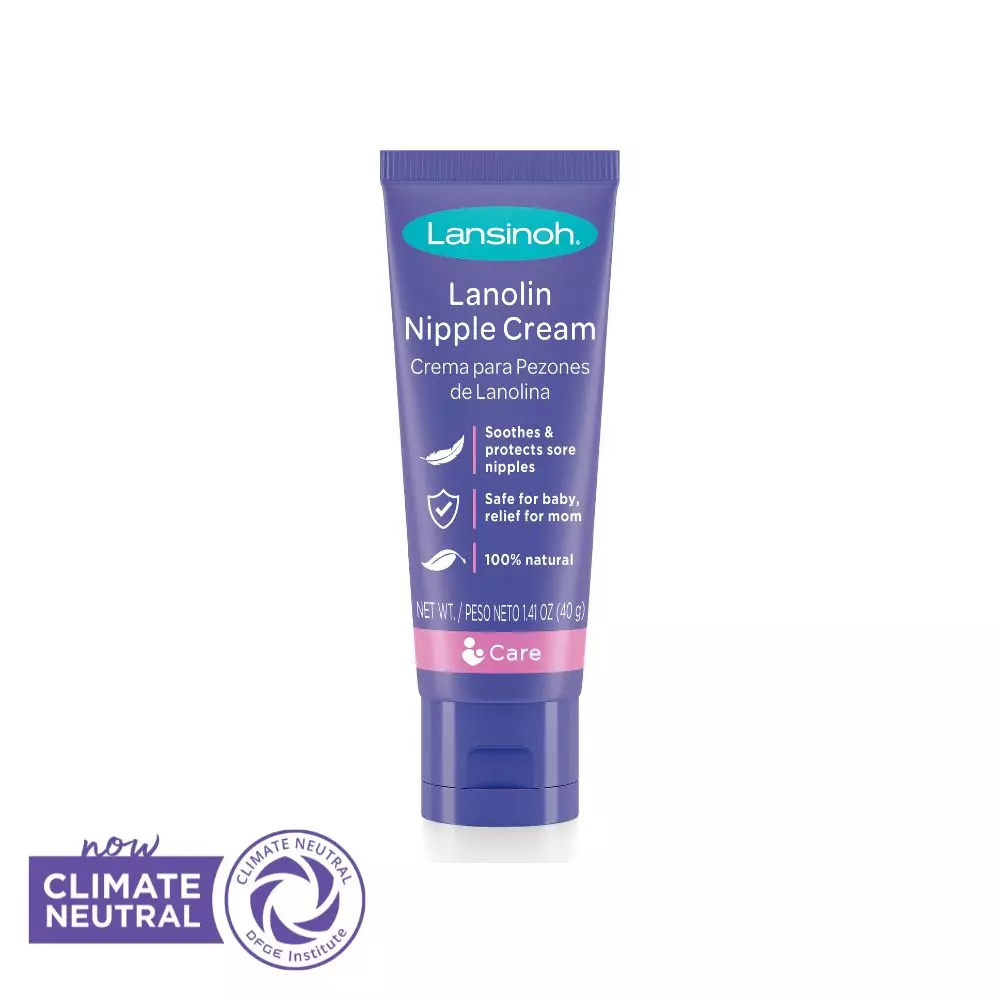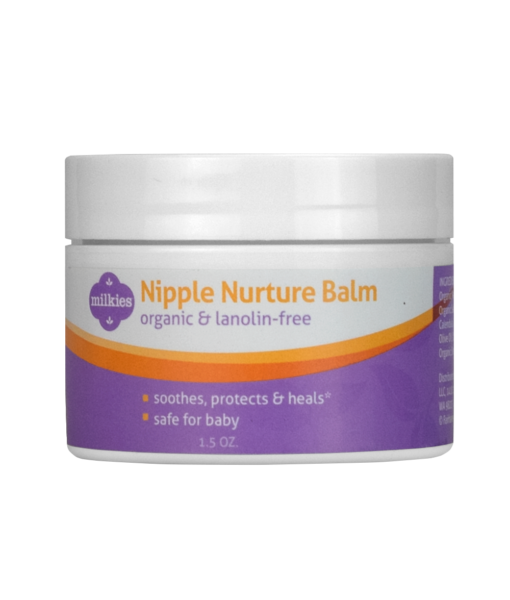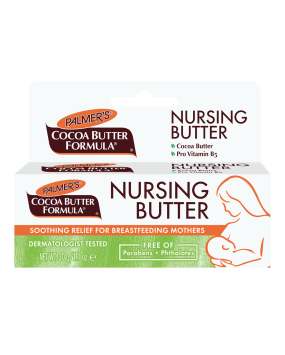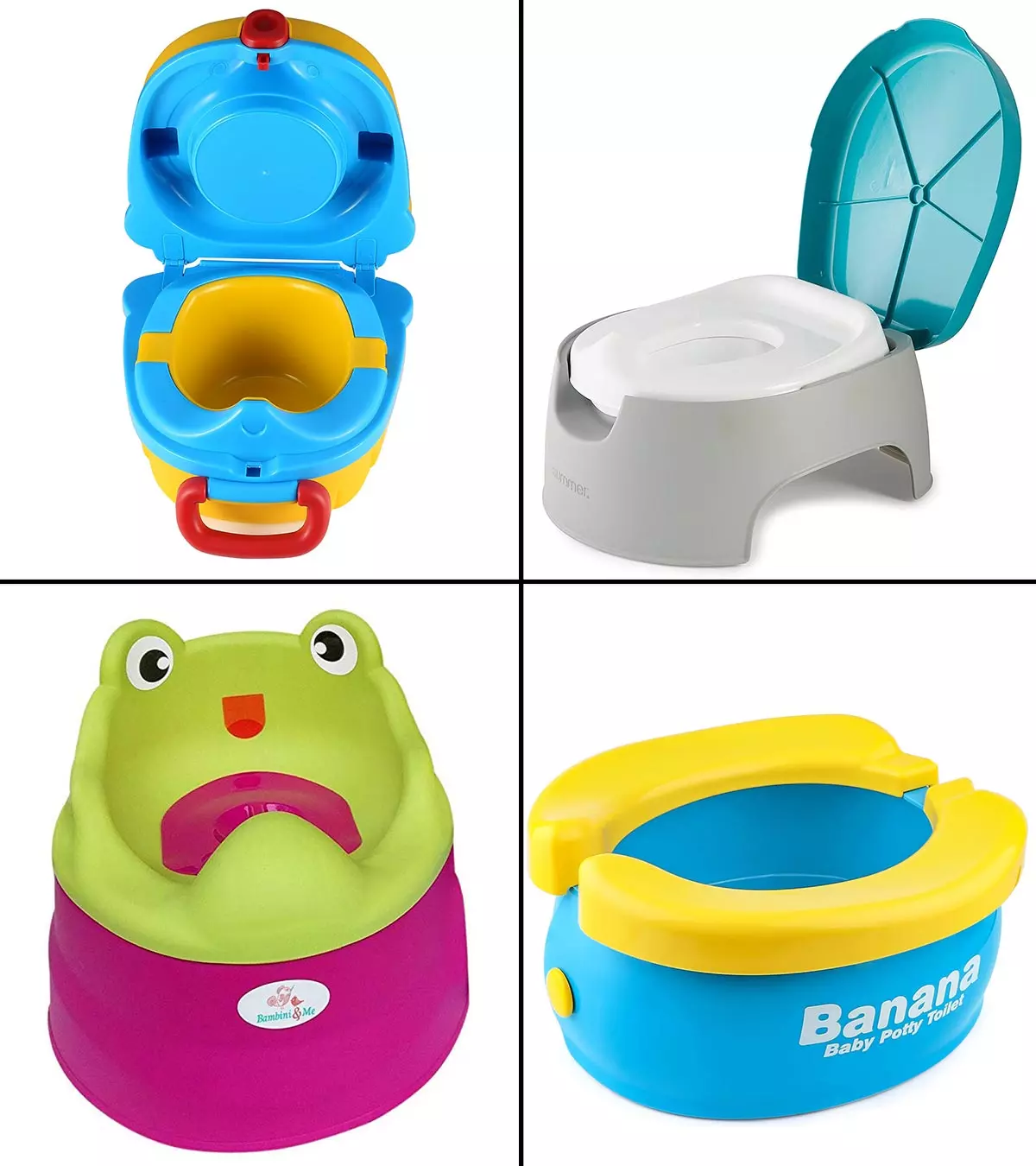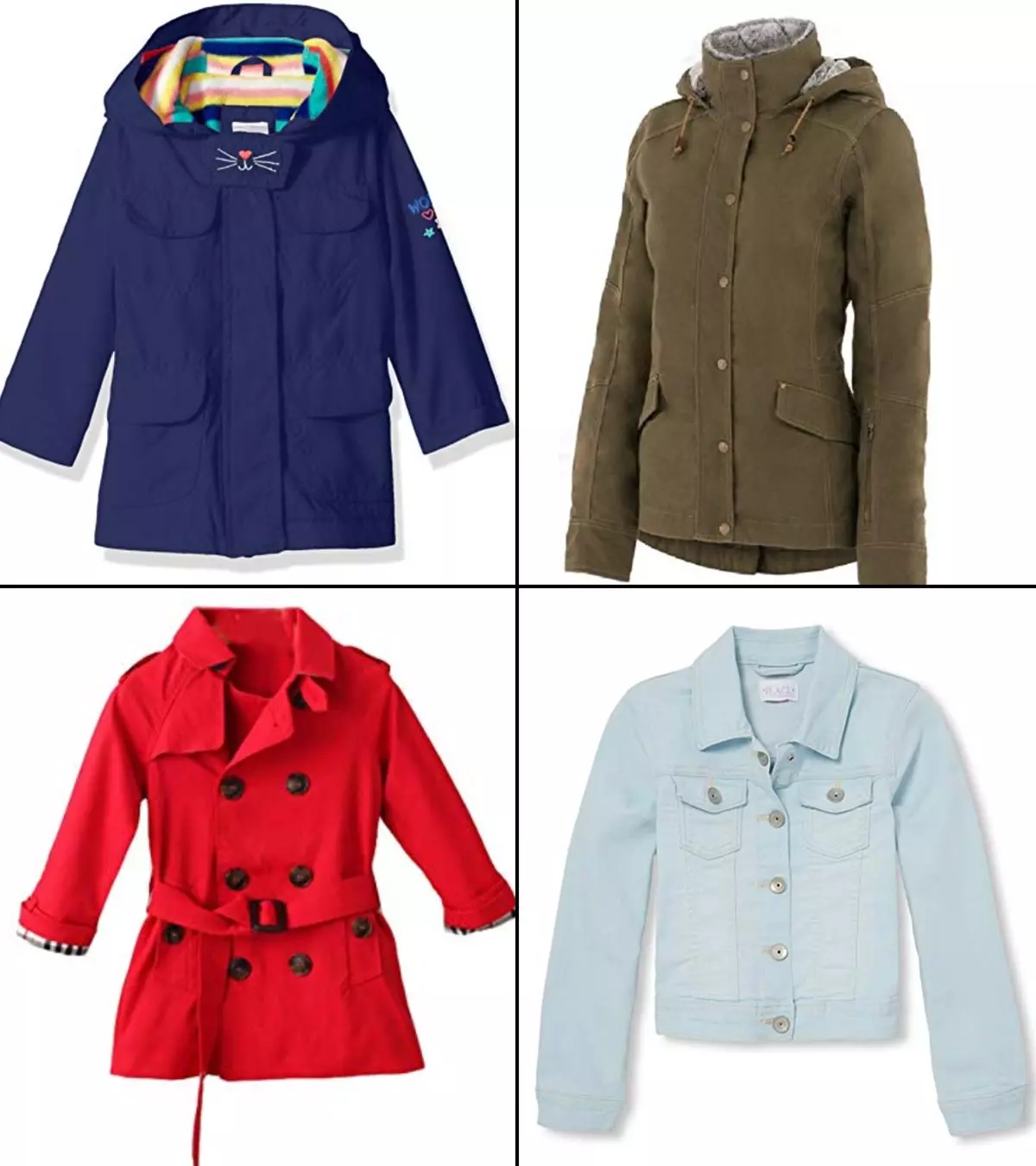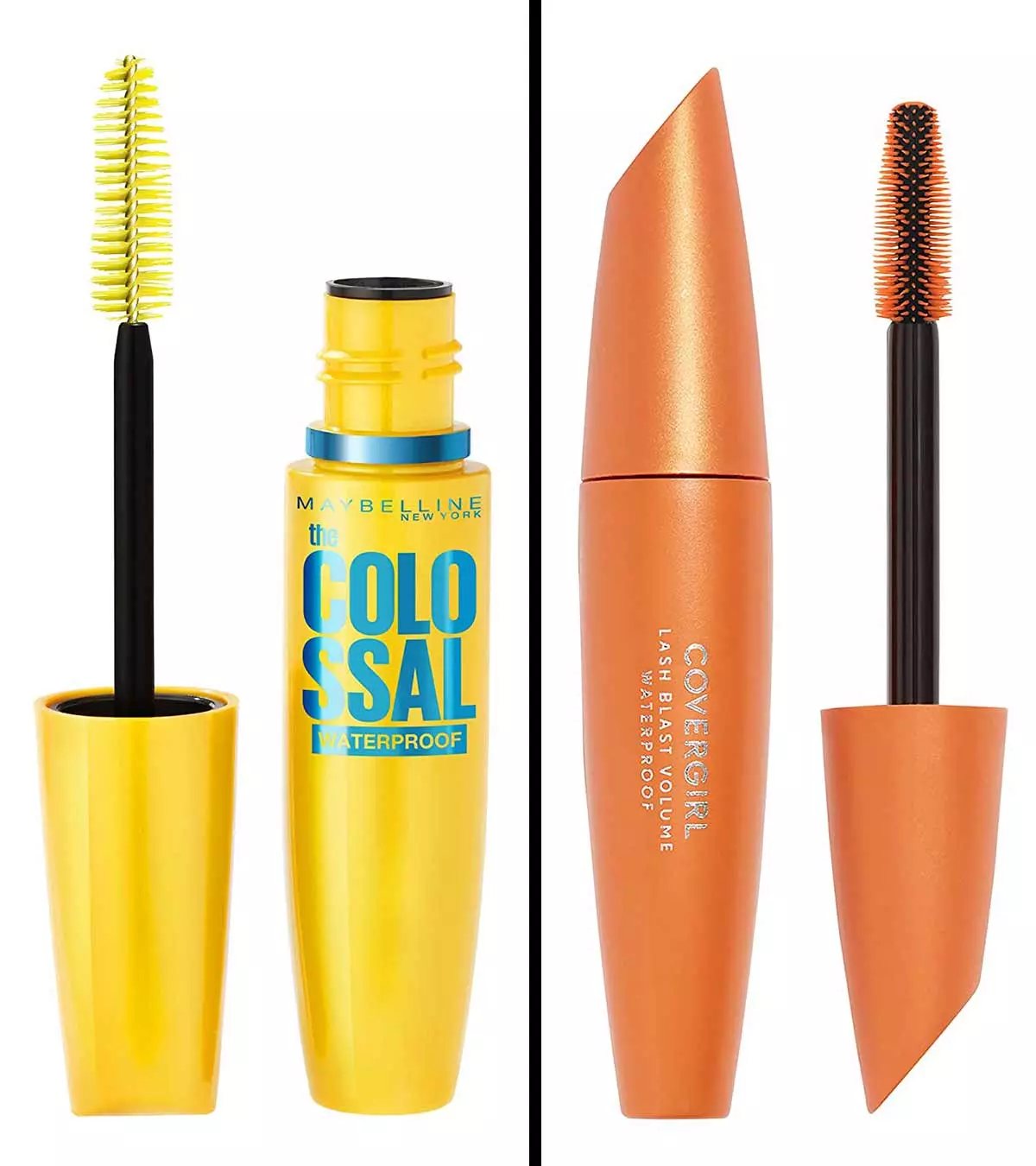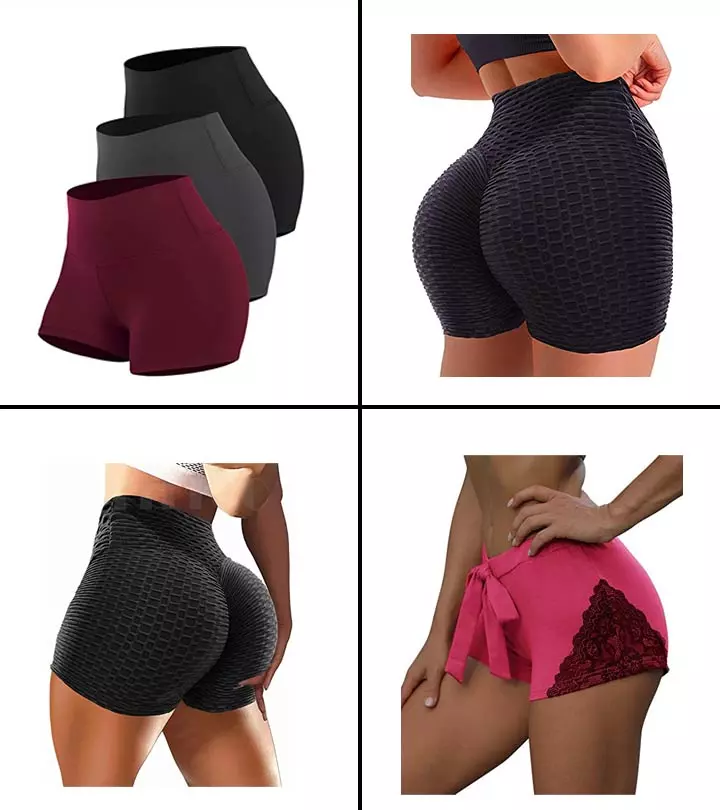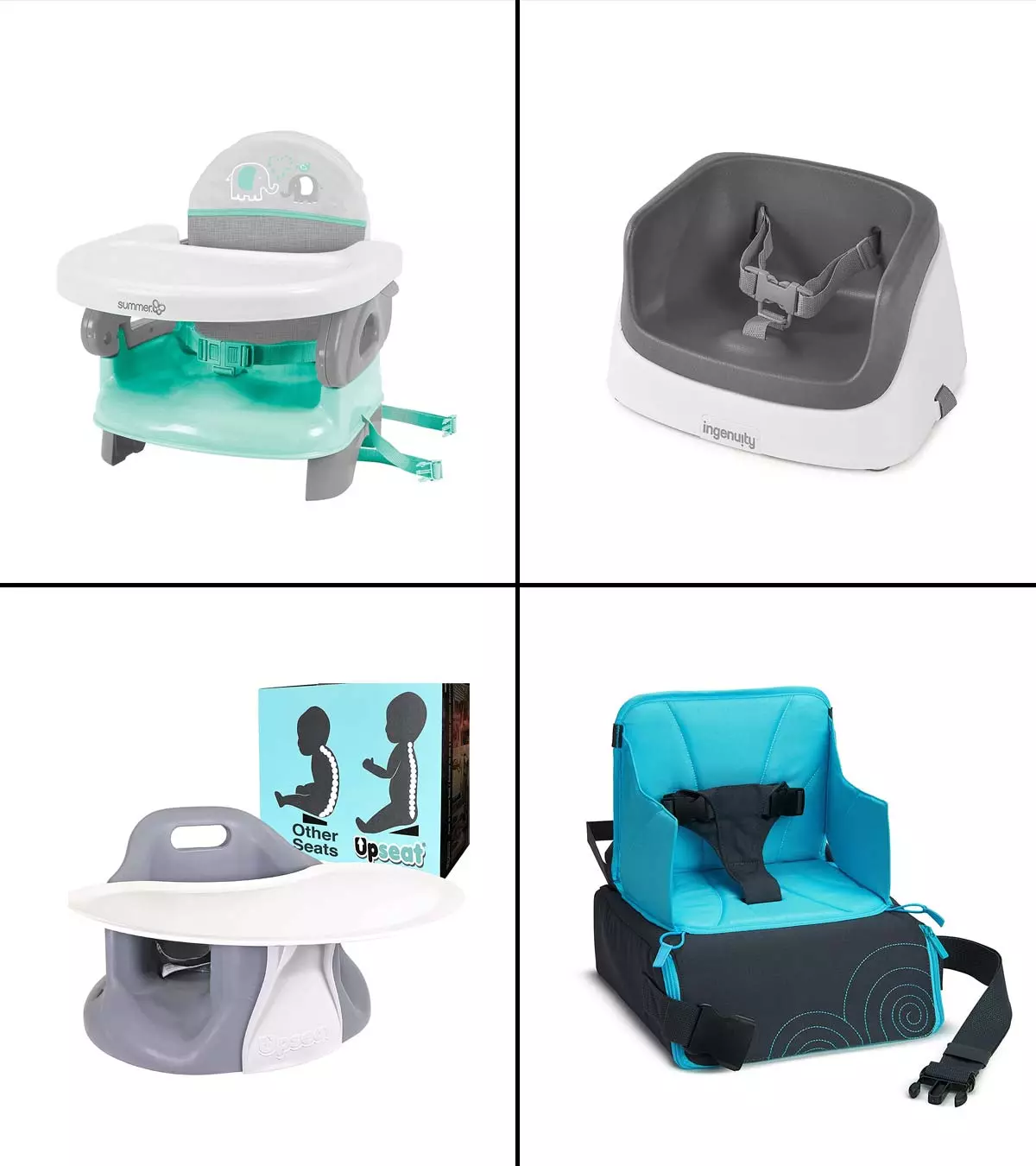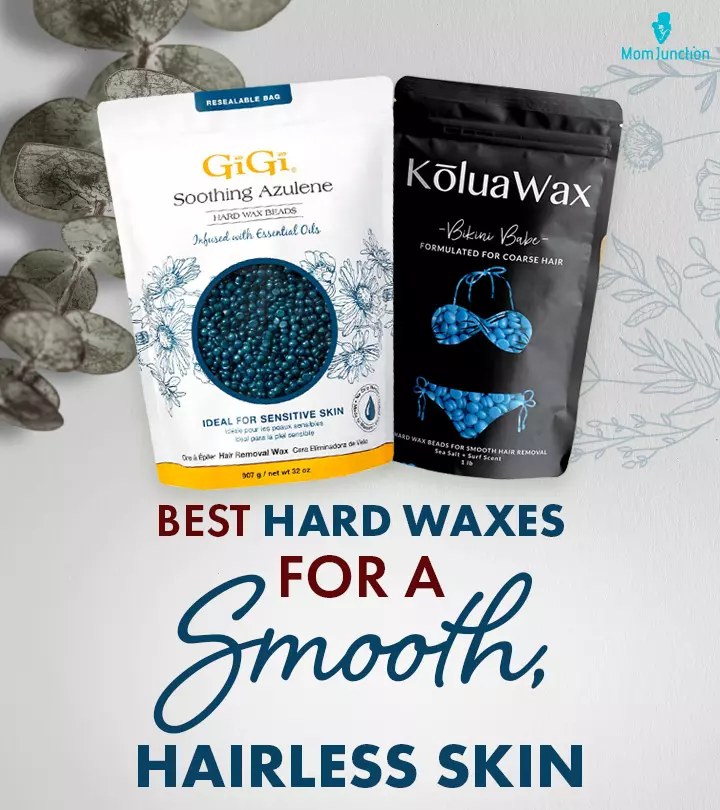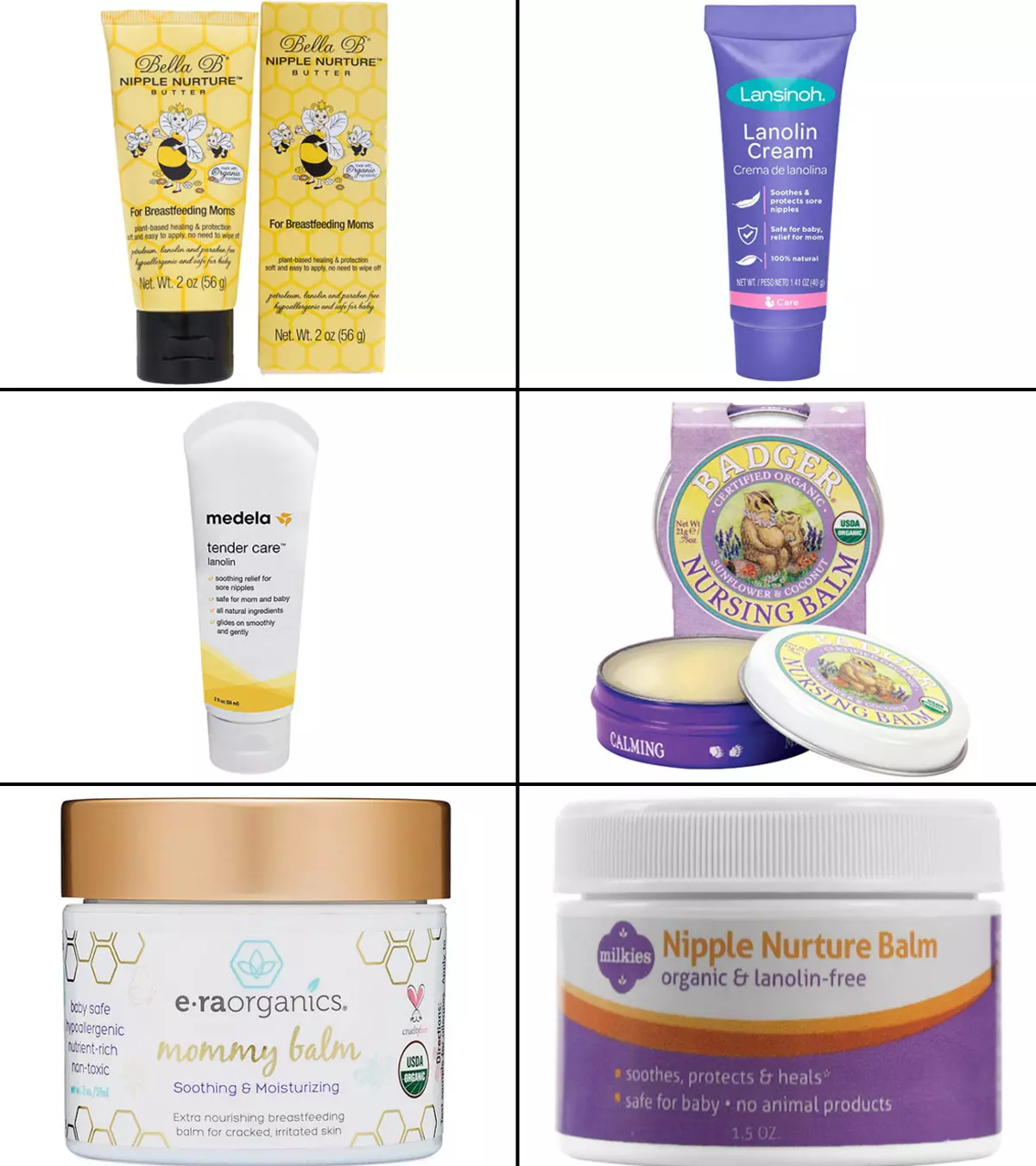
Image: Momjunction Design Team
Sore nipples can make it challenging for you to breastfeed your baby. Thus, you will need the best nipple cream for breastfeeding to help reduce soreness, moisturize dry nipples, and prevent them from chapping.
The market is replete with products that promise to relieve sore nipples, thus making it challenging for you to pick the right product. Well, we’ve got you covered. Read on as we tell you all you need to know about these products, list the best options available online, and give you a few tips on choosing the right one.
Top Picks
11 Best Nipple Creams
1. Best Hypoallergenic: Lansinoh Lanolin Nipple Cream
The clinically tested lanolin cream penetrates the deeper layers of the skin and heals the cracks formed on the nipples. The manufacturer filters out wool alcohol from the lanolin, thus making allergies due to the cream unlikely. The British Allergy Foundation endorses this nipple cream.
Pros
- No additives or preservatives
- Paraben-free
- Suitable for sensitive skin
- Hypoallergenic nipple cream
- Dermatologist-tested
Cons
- Might need frequent reapplication
- May be slightly greasy
"Despite being made of just one ingredient, it has worked like magic not just on my nipples but also on my lips and callused knuckles. The cream does not even stain my clothes, and as a small amount goes a long way, it lasts for quite some time."
 Quick tip
Quick tipApply a pea-sized amount on clean and dry nipples after each feeding and after a shower or bath to promote healing.
2. Best Natural: Bella B Nipple Nurture Butter Cream
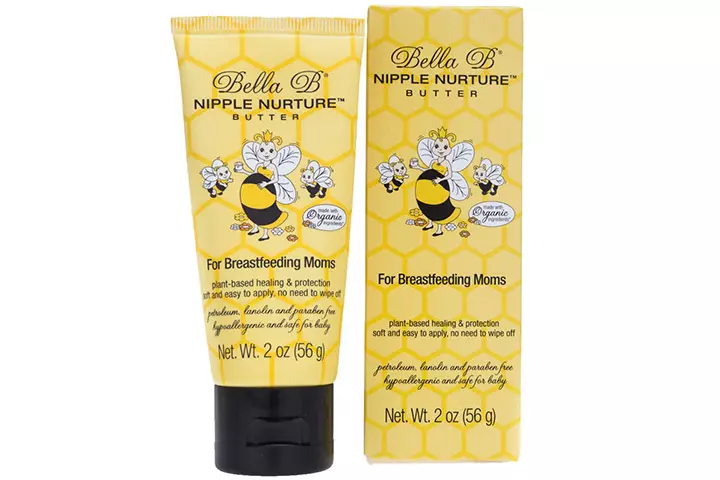
Bella B Nipple Nurturing Butter cream is made of plant-based fats, including cocoa butter, avocado oil, and olive oil. These are food-grade fats that are safe and effective for the baby and the mother. This review video will help you learn more about this healing nipple cream.
Pros
- No added flavors or scent
- Does not contain lanolin and petroleum products
- Hypoallergenic
- Free of preservatives and parabens
Cons
- Might cause flaking
- Might have a slightly thick consistency
"My nipples no longer hurt or crack while breastfeeding since I have added this cream to my routine. I found its texture a little thick, but warming it up between the palms makes it buttery. Overall, it has become a staple in my breastfeeding journey."
3. Best Cruelty-Free: Motherlove Nipple Cream
Motherlove brings you this nipple cream that has natural oils to soften the nipple and soothe sore nipples. This clinically tested sore nipple cream mostly comprises food-grade ingredients that are safe for the mother and baby, and the organic nipple cream is certified by USDA. This video will help you make an informed decision about this nipple cream.
Pros
- Cruelty-free product with a Leaping Bunny certification
- All raw materials are natural
- Does not contain any chemical additives or fillers
- Multipurpose formula
- Does not have to be removed prior to nursing
- Free of scent
Cons
- Consistency might be slightly light
- May leave stains on your bra
"The lanolin-free formula is what pushed me to get this cream. Its gentle ingredients have also not caused any skin allergies. Besides, it keeps my nipples moisturized throughout the day."
Lansinoh Lanolin Nipple Cream Best Hypoallergenic | Bella B Nipple Nurture Butter Cream Best Natural | Motherlove Nipple Cream Best Cruelty-Free | |
|---|---|---|---|
| Weight | 1.41 Ounces | 0.16 Pounds | - |
| Skin Type | Dry,Sensitive | All | Dry |
| Dimensions | 4.94 x 1.63 x 3.25 inches | 2.25 x 1.5 x 4.75 inches | 1.78 x 1.78 x 1.85 inches |
| Weight | - | - | 3.17 Ounces |
| Rating | |||
| Reviews | 40,340 | 1,572 | 13,863 |
| Price | $8.12 | $9.97 | $16.99 |
4. Best Dermatologist-Certified: Earth Mama Organic Nipple Butter
This expert-approved organic nipple balm helps soothe the irritation of the nipples and makes breastfeeding more comfortable for the mother. Ir contains organic raw materials, which include plant-based fats derived from plants, such as cocoa seed butter and mango butter.
Pros
- Dermatologist-tested to prevent skin irritation
- Does not contain preservatives, lanolin, and parabens
- Multipurpose formula
- Fast-acting nipple cream
- USDA-certified organic
Cons
- Might have a watery consistency
- Might have a slightly strong smell
"The buttery texture of this cream gets absorbed quickly and prevents my nipple from getting chapped. I do have to warm it with my hands before application, but the way it reduces soreness and makes the skin plump remains unmatched."
 Do remember
Do rememberAlways wash your hands with water and soap before applying the nipple butter to prevent introducing germs onto the nipple area.
[ Read : Earth Mama Organic Nipple Butter Review ]
5. Best Moisturizing: Medela Tender Care Nipple Cream
The product helps moisturize the nipples, keeps them soft, and reduces discomfort. It is made entirely from naturally sourced ingredients and contains pure lanolin without additives.
Pros
- Hypoallergenic and sensitive skin-friendly
- All-natural ingredients
- Non-messy skincare product
- Spreads evenly during application
- No need to remove before breastfeeding
Cons
- Might get absorbed a little too quickly
- May not glide on smoothly
"In addition to healing my chapped nipples, this cream doubles as a lip balm. Its skin-friendly ingredients have also not caused any irritation. However, I’d recommend using a pea-sized amount to keep the clothes from getting stained."
6. Best For Chapped Nipples: Era Organics Nipple Balm
The cream is formulated to heal chapped and painful nipples caused by breastfeeding. It contains all-organic, safe, and effective key ingredients extracted from edible plants and fruits, such as sunflower seed oil and apricot oil, ensuring it is baby-friendly and safe for nursing moms.
Pros
- Cruelty-free
- Free of parabens and petroleum
- Hypoallergenic
- Ideal for dry skin
- Safe nipple cream
- No added dye or fragrance
- Multipurpose formula
Cons
- Might be slightly greasy on application
- Some may not like the smell
"Thanks to this balm, I can breastfeed my baby without worrying about my nipple chapping. I am not a big fan of its scent, but I have stuck with it as it effectively supports healing and does not cause any irritation to me or my baby."
7. Best Pain-Relieving: Milkies Nipple Nurture Balm
This breastfeeding cream helps reduce discomfort, relieves pain, and makes breastfeeding a comfortable experience. It is made from natural ingredients. The key ingredients include marshmallow root, olive oil, shea butter, and calendula, making it a trusted choice.
Pros
- No animal ingredients used, making it suitable for vegans.
- Does not contain lanolin and other chemicals that could be harmful to the baby
- No sticky residue
- Free of harsh chemicals and preservatives
Cons
- May not have a pleasant smell
- Consistency might be watery
"Apart from soothing cracked nipples, it also protects them from further harm. It also reduces friction when I apply it before pumping. Its olive oil scent is a tad strong, but its ability to heal my skin sans the stickiness has made it a dependable product."
8. Best USDA-Certified: Bamboobies Pumping Lubricant
The Bamboobies organic nipple cream is formulated to work as an effective pump lubricant for lactating mothers to make breast milk pumping easier by reducing friction. This mom-approved nipple care cream contains various organic key ingredients including coconut, sunflower oil, olive oil, cocoa, shea butter, and beeswax.
Pros
- Lanolin-free formula
- USDA-certified skincare product
- No synthetic fragrances
- Phthalate- and paraben-free
Cons
- May have a greasy texture
- Some may find the consistency runny
"Just a small amount of this cream is enough to keep my nipples from cracking even when I pump. Its consistency is a bit runny, but the tube-style packaging makes application easy."
9. Best Vegan: Earth Mama Vegan Nipple Butter
The Earth Mama vegan nipple butter is crafted without beeswax, using only organic botanical butter such as organic calendula flower extract and cocoa butter, which soothe dry and cracked nipples and moisturize the delicate skin of the areolas. This non-toxic nipple cream has been clinically tested for irritation-free use and is free of lanolin, preservatives, and artificial fragrances.
Pros
- Non-GMO
- Cruelty-free
- Can be used on other body parts
- Dermatologist-tested
- Free of parabens and petroleum
Cons
- May have a greasy consistency
- May get clumpy
"After trying multiple creams, I have finally settled on this one due to its gentle formulation. Despite being deeply moisturizing, it does not leave a greasy residue, eliminating the need to wipe it before feeding my little one. Plus, the coca smell is very soothing."
10. Best Easy-To-Apply: Palmers Cocoa Butter Nursing Cream
This cocoa butter-based nipple cream is soothing and easy to apply. The nipple ointment provides relief from irritation caused by cracked nipples and also contains natural vitamin B5 to nourish nipple skin.
Pros
- Dermatologist-tested
- Does not contain parabens and phthalates
- Silky texture for smooth application
- Moisturizing nipple cream
Cons
- Might need to wash it off before breastfeeding
- Some may not like the smell
"This cream moisturizes and soothes my irritated skin without leaving an oily residue. Thankfully, it is not gritty and absorbs well. Moreover, the option to breastfeed my baby without removing it simplifies my everyday routine."
11. Best Soothing: The Honest Company Calm Your Nip Balm
Honest’s nipple cream is versatile, as it can be applied pre-, during, and post-breastfeeding phases. This soothing nipple cream is made using organically derived ingredients, including shea butter, coconut oil, and jojoba seed oil, along with other nourishing and moisturizing elements, to calm dry and cracked nipples.
Pros
- Hypoallergenic
- Suitable for sensitive skin
- Dermatologist-tested
- Free of silicones, petroleum, and lanolin
- Unscented
- Phthalates- and PEGs-free
Cons
- May stain
- May have a runny consistency
"The smooth consistency of this nipple balm makes the application process comfortable. It's also very soothing; hence, I even use it to lubricate my pump. Additionally, the lack of overwhelming scents is a blessing for my senses."
Nipple Creams: What Are They For?
Nipple cream is a specially made medicated cream that is applied to the breast nipples to ease the discomfort caused due to breastfeeding. There are several other advantages of using a nipple cream.
How Does A Nipple Cream Help?
Applying a nipple cream can:
- Relieve cracked nipples as well as treat the pain and irritation that you experience because of cracked nipples.
- Moisturize the areola, which is also affected when the nipple becomes dry and cracked. Ordinary creams may not work at moisturizing the areola, and a nipple cream can be more helpful.
- Prevent the skin around the areola from becoming stretchy. This happens due to repeated suckling by the baby. The extra moisturizing capabilities of a nipple cream can provide relief from the stretching of the skin around the nipple.
How to Choose The Right Nipple Cream?
Check the following things about the nipple cream before making a purchase:
- Type of ingredients: Consider creams with safe moisturizing that help maintain the skin’s protective barrier. Herbal nipple creams that have natural or organic ingredients are always better than those with alcohol and parabens. The only compound that is an exception is lanolin, which is widely recommended by medical professionals for application on sore nipples (1). Do note that lanolin is derived from sheep’s wool. It may not be ideal for vegetarians, vegans, and people with wool allergy. Also, apart from checking the key ingredient list, it is also essential to check the additional ingredient list given on the bottle to avoid potential allergens.
- Avoid those with numbing properties: Some calming nipple balms and creams claim to numb the nipple to reduce discomfort. However, the compounds that cause the numbing can be harmful to the baby and even lead to numbing of the baby’s mouth. So, avoid nipple creams that have numbing capabilities.
- Avoid creams with added scents: Only pick creams that have a natural scent and are free of added fragrances derived from chemicals. Chemical-based fragrances can also irritate the baby’s nose and lungs.
Tips For Nipple Cream Usage
- Most nipple cream manufacturers claim that it is safe to leave their creams on the nipple even while breastfeeding. However, it is always best to wipe off the nipple cream before breastfeeding since we do not know how the baby may react to the ingredients of the cream.
First, wipe the cream off the nipple with a soft tissue paper. Then clean the area with water, dry it, and apply the cream again after breastfeeding.
- For the best results, use the nipple cream during the longest gap between feeds so that the cream stays on the nipple for longer. So if your baby breastfeeds at night and then only feeds in the morning, then apply the cream after the feed at night.
- If you think your baby dislikes the cream or is uncomfortable with it, do not use the cream anymore. You will know this when the baby repeatedly unlatches from the breast or shows discomfort through facial expressions or cries due to the smell and taste of the cream.
Frequently Asked Questions
1. Is nipple cream necessary for breastfeeding?
A nipple cream helps relieve discomfort and soreness that usually occurs in new mothers while breastfeeding. However, not every new mother needs nipple cream as they may not experience discomfort.
2. Is coconut oil safe for breastfeeding nipples?
Yes, sore nipples are common while breastfeeding, and coconut oil keeps nipples hydrated and provides relief (1). If the discomfort is severe, you should talk to a healthcare professional.
3. Can I pump with nipple cream?
FDA suggests removing the cream or ointment on the breasts before pumping the milk (2). Nipple cream may contain soothing agents or other ingredients that might not be suitable for your little one.
4. When should I start using nipple cream?
You can start using a nipple cream whenever you experience nipple discomfort or soreness. Apply the nipple cream after you feed your baby.
5. Can I use too much nipple cream?
Anything excessive will cause more harm than good. Too much nipple cream can stain your clothes and may not offer any additional benefits than when used optimally.
6. Is nipple cream good for lips?
Some nipple creams can also double as lip balms as they may have potential moisturizing ingredients in them. Lanolin is one such ingredient that treats sore and cracked nipples during breastfeeding (3). However, people allergic to wool should be away from lanolin-based creams.
The Bottom Line
Bid farewell to cracks, sores, itchiness, and other problems that come with breastfeeding your infant using the best nipple creams. These creams are formulated with nourishing ingredients that moisturize and soothe the nipples and prevent the skin around the areola from becoming stretchy. The best creams are also hypoallergenic and do not contain alcohol, parabens, added fragrances, or numbing agents that may irritate your skin or your baby’s mouth. Our favorite picks for you from this list are the Lansinoh Lanolin Nipple Cream, which is hypoallergenic and clinically tested, the Motherlove Nipple Cream, formulated with plant-based fats and natural oils, and the Medela Tender Care Nipple Cream, which contains pure lanolin without additives.
Infographic: Management Of Sore Nipples When Breastfeeding
Nipple creams are formulated to alleviate discomfort and promote healing for breastfeeding mothers. Accompanying their usage with proper breastfeeding practices and hygiene can further reduce the risk and symptoms of sore nipples. Refer to the infographic below to learn how to care for nipples during breastfeeding.

Illustration: Momjunction Design Team
References
Why Trust MomJunction?
Feeding your baby when you have sore and chapped nipples can be painful. To help you manage this pain, our team of writers and editors have handpicked the best nipple creams for breastfeeding after exploring multiple websites and considering several user reviews. Moreover, we have also included the benefits of these safe and effective creams and tips on buying the right cream for your convenience.
Community Experiences
Join the conversation and become a part of our nurturing community! Share your stories, experiences, and insights to connect with fellow parents.
Read full bio of Vibha Navarathna
Read full bio of Wedetso Chirhah
Read full bio of Rohit Garoo

